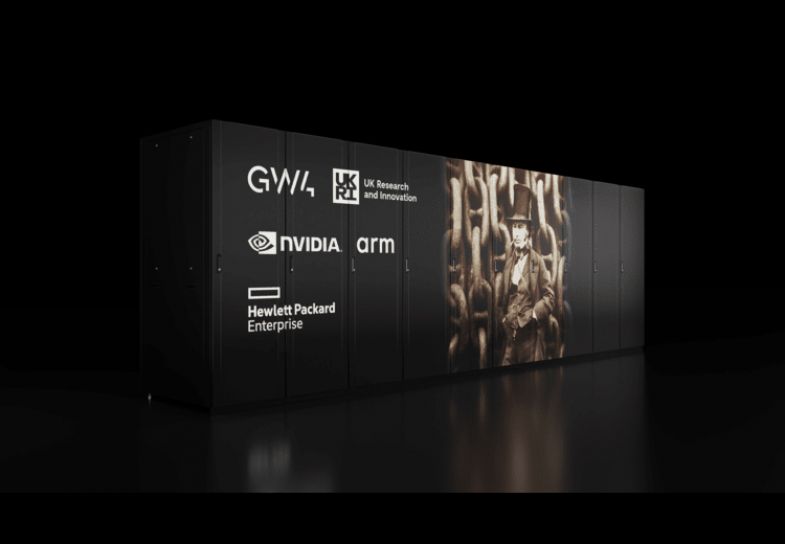
The University of Bristol is poised to become a hub of computing research in the UK, following a multi-million-pound government investment to create the country’s most powerful supercomputer
In March 2023, the UK government unveiled plans for a supercomputer, supported by a £900 million investment across the UK, to create a specialised Artificial Intelligence Research Resource (AIRR) and revolutionise the country’s computing capability.
The investment follows the government’s review into the UK’s computing needs over the next decade, which found that the UK had been significantly under-investing in computational facilities. The announcement was welcomed by researchers across the country, including the University of Bristol, which will host a new national supercomputer research facility.
The new AIRR at the University of Bristol will be a national hub for research in the field of artificial intelligence (AI). The supercomputer, known as Isambard-AI, will be the most powerful in the country and one of the most powerful in the world when it is completed.
“We haven’t had anything from the UK in the top 10 supercomputers in the world for years. So this is really catching back up,” explains Simon McIntosh-Smith, professor of high-performance computing at the University of Bristol and principal investigator for Isambard-AI. “The hardware is going to be big, fast and energy-efficient, and based on the latest GPUs [graphics processing units] from NVIDIA, an industry leader in AI hardware.”
Home to the UK Research and Innovation (UKRI) Centre for Doctoral Training in Interactive Artificial Intelligence, the University of Bristol is already a hub for AI. Isambard-AI will be a new addition to the university’s contributions in this field. It will be built at the National Composites Centre, in collaboration with the GW4 Alliance, a consortium of the universities of Bath, Bristol, Cardiff and Exeter.
The spirit of collaboration is absolutely vital to the success of the AIRR, says McIntosh-Smith. “There’ll be a lot of collaboration. People want to work closely with us. Ultimately, we’re a service provider. Our job is to make it available as a world-class facility for anyone who wants to do interesting AI research in the UK.”
“At the moment, there’s so much demand but so little capacity. This is a step change in the level of capability. People will be able to tackle problems that would have been totally infeasible to even consider before, in terms of the size of data sets or the amount of computing power needed.”
The AIRR will primarily be used as a research facility for PhD students, academics and institutions that apply through the UKRI. However, McIntosh-Smith hopes that at least a “small slice of the system” can be used for undergraduate and postgraduate-level courses, training and academic projects. The university is in the process of creating a new computer science degree with an AI component, which will make use of the facility.
McIntosh-Smith is aware of the misgivings regarding the use of AI in academia but believes that the benefits outweigh the drawbacks. People will always have reservations before accepting AI as part of the everyday, he says, comparing the current perception of AI to the adoption of new technologies in the past, from the invention of steam power to now-omnipresent mobile phones. “Once we get used to using AI, we won’t be able to imagine doing what we do without it. AI can make it faster, better and easier to do a lot of things.”
Find out more about Isambard-AI at the University of Bristol.

























